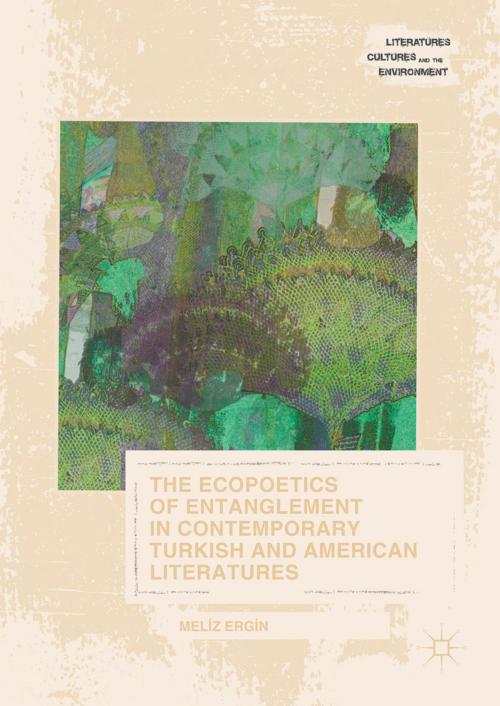The Ecopoetics of Entanglement in Contemporary Turkish and American Literatures
Fiction & Literature, Literary Theory & Criticism, Theory| Author: | Meliz Ergin | ISBN: | 9783319632636 |
| Publisher: | Springer International Publishing | Publication: | October 11, 2017 |
| Imprint: | Palgrave Macmillan | Language: | English |
| Author: | Meliz Ergin |
| ISBN: | 9783319632636 |
| Publisher: | Springer International Publishing |
| Publication: | October 11, 2017 |
| Imprint: | Palgrave Macmillan |
| Language: | English |
This book foregrounds entanglement as a guiding concept in Derrida’s work and considers its implications and benefits for ecocritical thought. Ergin introduces the notion of "ecological text" to emphasize textuality as a form of entanglement that proves useful in thinking about ecological interdependence and uncertainty. She brings deconstruction into a dialogue with social ecology and new materialism, outlining entanglements in three strands of thought to demonstrate the relevance of this concept in theoretical terms. Ergin then investigates natural-social entanglements through a comparative analysis of the works of the American poet Juliana Spahr and the Turkish writer Latife Tekin. The book enriches our understanding of complicity and accountability by revealing the ecological network of material and discursive forces in which we are deeply embedded. It makes a significant contribution to current debates on ecocritical theory, comparative literature, and ecopoetics.
This book foregrounds entanglement as a guiding concept in Derrida’s work and considers its implications and benefits for ecocritical thought. Ergin introduces the notion of "ecological text" to emphasize textuality as a form of entanglement that proves useful in thinking about ecological interdependence and uncertainty. She brings deconstruction into a dialogue with social ecology and new materialism, outlining entanglements in three strands of thought to demonstrate the relevance of this concept in theoretical terms. Ergin then investigates natural-social entanglements through a comparative analysis of the works of the American poet Juliana Spahr and the Turkish writer Latife Tekin. The book enriches our understanding of complicity and accountability by revealing the ecological network of material and discursive forces in which we are deeply embedded. It makes a significant contribution to current debates on ecocritical theory, comparative literature, and ecopoetics.















